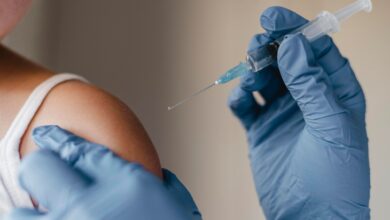Suffering from a headache might be a migraine

Too often, what you may think is stress, sinus or tension headache could actually be a migraine. If you have headaches that impact your life and they prevent you from doing your usual activities, that you miss out on family functions and you find yourself taking pain killers on a daily basis, then you really need to see a doctor to be diagnosed properly so that you can be treated appropriately.
So what is the difference between a headache and a migraine? A headache is very different from a migraine in the way that suffering from a headache doesn’t necessarily interrupt your daily life, while migraines turn your life upside down. You can’t begin to understand what a migraine sufferer is going through when you have not experienced a migraine yourself.
To help you recognise whether you may suffer from migraines, try asking yourself this questions; do you ever get a throbbing, one-sided headache? Do you feel sick or vomit when you have a headache? Is your headache preventing you from performing your regular activities?
If you answer “yes” to any of these questions, you may be suffering from a migraine headache. Some people with migraines don’t even bother to see their doctor because they don’t think anything can be done for them.
So what triggers migraine?
Any type of alcoholic beverage can trigger a migraine attack, but some types of alcohol are worse than others. The best advice is to drink in moderation and avoid any type of alcoholic drink that has triggered a headache in the past. Smoking is a common headache cause for many people and can be a migraine trigger for people who smoke or who are exposed to second-hand smoke.
Foods and Beverages
Certain foods, especially coffee, chocolate, nuts, dairy products, red wine, preservatives in cured or processed meat, biltong, chocolate, citrus fruits and aged cheeses, fried foods, shellfish, spicy foods, peanuts and yeast.
Changes in the Weather
Extremes of weather, very hot or very cold, as well as changes in atmospheric pressure can be headache causes and migraine triggers.
Bright Lights
Sensitivity to light is a classic migraine headache symptom. Bright lights, florescent lights, or flashing lights may be migraine triggers or may make an existing headache worse. It might be a good idea to arrange your work environment so that you avoid these types of lights; one way to avoid this headache trigger is to wear sunglasses when exposed to bright light.
Medications
Common medications that may cause migraine headache include birth control medications, hormone replacement medications in women, and some blood pressure medications. Other drug-related headache causes include rebound headaches from overuse of over-the-counter pain relievers. If you suspect a medication related headache, talk to your doctor about changing to a different medication or changing how you take your medication.
Noise Exposure
Noise acts very much like light on a migraine headache. Loud noise or high-pitched noise can be a migraine trigger. If you already have a migraine headache, loud noise or any noise can make your headache worse. You might want to have some ear plugs handy for when you can’t get away from the offensive sounds. Once you have a migraine, find a dark and quiet place to lie down until your migraine medication kicks in.
Daily Activities
Among the most common migraine triggers are sleeping too much or too little and skipping meals. One strategy for preventing migraines is to stay on a regular schedule for daily activities. Try to eat, sleep, and wake at the same times every day. This can be especially important on weekends. Exercising too much, especially in the heat or when you are out of shape, has also been linked to migraine headache.
Stress
Last but certainly not least on the migraine trigger list is stress. Stress may be the biggest headache cause of all because it is not just negative stress that can affect you. Stress can come in the form of anxiety, life changes, mental fatigue, grief, or even excitement. “In addition to the stress itself being a headache trigger, the let-down period after stress is a very common migraine trigger. One of the best things you can do to prevent migraine headache is learn to identify stress, avoid it when possible, and practice stress reduction techniques that work for you.
So in order to treat your migraine you need to avoid any of the mentioned triggers, but If your symptoms remain the same or get increasingly worse, your doctor may want to give you a prescription migraine medication or try other forms of treatment.




